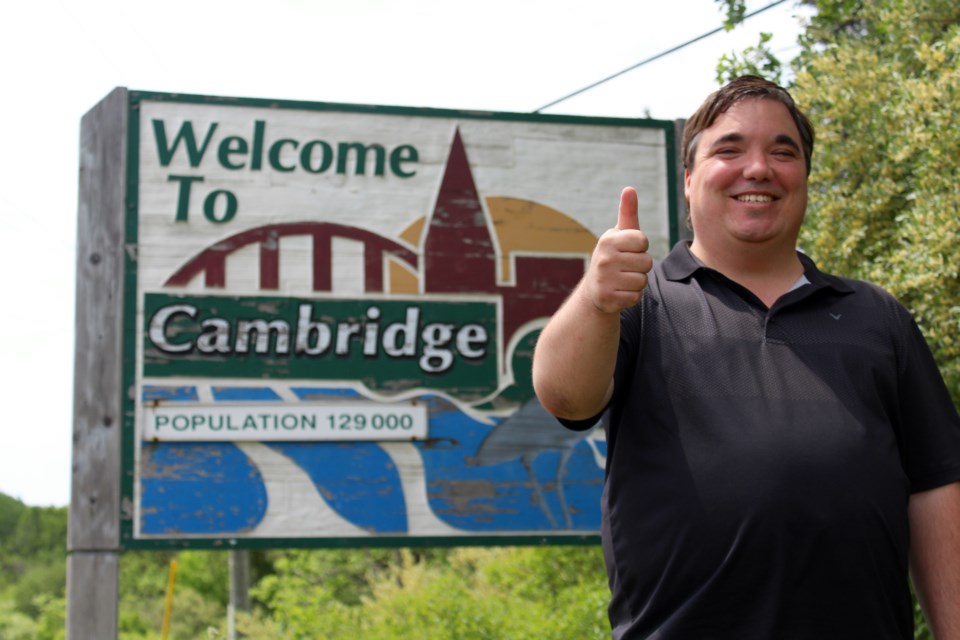The province's move to dissolve Peel Region into Brampton, Caledon and Mississauga earlier this year brought immediate attention to the future of Waterloo region; a two-tier system that functions in the same way as Peel with nearly 60 elected officials running the show in seven municipalities, including Cambridge.
The same day housing and municipal affairs minister Steve Clark announced changes were coming to Peel, six other municipalities were put on notice.
Durham, Halton, Niagara, Simcoe, Waterloo and York, were told they could be next, and that regional facilitators would be assigned to help determine the fates of each.
Now, after a three month wait and much discussion about what it could mean for the city's future, those decisions appear to be nearing.
Clark told attendees at the Association of Municipal Organizations' annual conference this week that a regional facilitator will be assigned to Waterloo region by Sept. 11 with a goal to explore the idea of keeping the current system status quo, reformed or redefined altogether.
Among the questions the facilitator will want answered are, does the current two tier system work? Could each city stand alone? Or, is Waterloo region better as one?
The answers depend on who you ask.
Cambridge Mayor Jan Liggett doesn’t see amalgamation with Kitchener, Waterloo and the townships as the answer.
“Amalgamation is not cheaper nor do services get better,” Liggett said in an email to CambridgeToday.
“My fellow mayors and I see this as a historic opportunity to improve accountability to taxpayers and be the conduit for builders to provide the housing our individual communities need as quickly as possible," she added.
"We are excited to take on that opportunity as leaders, working towards that common goal. For me, amalgamation is not on the table as there are other options that are available to us.”
The "other options" could be remaining with the current system or having Cambridge branch out as a single-tier city.
In June, six regional councillors made a pitch to recommend a merger of the seven muncipalities to make one large city.
Councillors Rob Deutschmann, Chantal Huinink, Michael Harris, Colleen James, Kari Williams, and Jim Erb presented their ideas for regional government reform and a move to a more efficient, unified and easy-to-navigate system.
None of the councillors at the presentation were from Cambridge with both Pam Wolf and Doug Craig notably absent.
However, Craig, who’s a known opponent to amalgamation, sat in the crowd. City mayors were left out of the discussion according to Deutschmann.
When asked about the meeting, Liggett said the regional councillors were free to express their opinions.
“The six members of regional council who held the press conference don't need permission from the rest of us to address the media,” she said.
“They don't need to let the mayors know in advance when they do things like this nor do they need to invite us.”
Ward 8 councillor Nick Ermeta believes Cambridge could make a run of it on its own.
He went as far as to layout possible scenarios for various services that currently involve the region or other municipalities, including transit, policing and the school boards.
Ermeta says transit could be contracted from an adjacent municipality, differing from the current model by allowing the city to request the types of transit it needs.
The city could create a joint transit board in which Cambridge would decide the kinds of service it seeks or have its own transit system entirely with cross border agreements.
“As for the money Cambridge contributed towards the Kitchener and Waterloo Light Rail Transit system, I want it paid back,” Ermeta said.
“While I respect the opinions of the region, as this could negatively affect their position, my commitment is first and foremost to the City of Cambridge and the community in which I represent.”
Policing could use the services of the Ontario Provincial Police, be split or contracted out.
“If the Cambridge Police Detachment of the Waterloo Regional Police broke apart and became the Cambridge Police Force, we could still share the police chief, the Maple Grove Road Building and some administrative staff,” he said.
“That building would be home to the two separate police services. A Cambridge police board would report to the joint Cambridge - Waterloo police chief. It would be laid out in provincial statute that the joint police chief must implement the decisions of the Cambridge Police Board."
When it comes to the school boards, Ermeta believes things could remain status quo, pointing to a city like Brantford and the Grand Erie District School Board that also covers Brant, Haldimand and Norfolk County.
Ermeta emphasized that all of his comments and ideas are his own and don’t represent council, the city or the region’s thinking.
Regional chair Karen Redman has also weighed in on the matter. In a statement she said she believes staying together is the best solution.
“Our community has been clear since the beginning - we are stronger together,” Redman said.
“We have an important story to tell in Waterloo Region around collaboration and past successes, but we also need to be bold and aggressive in addressing our future growth. I look forward to working with the provincial facilitator and Ontario Government to drive efficiencies, build more homes and create a stronger community.”

